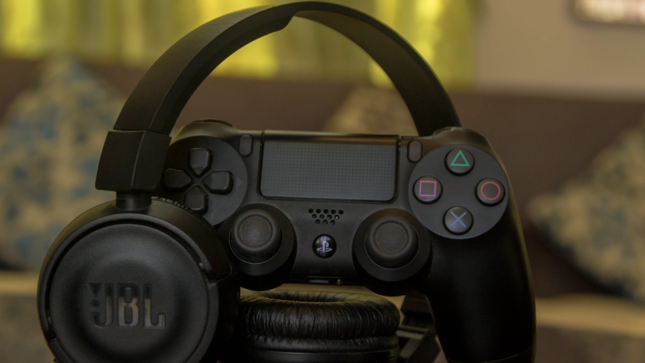How Music Shapes the Gaming Experience
August 13, 2024, 4 months ago

Whether commuting to the office or working out in the gym, music can turn a bland experience into something enjoyable. We all know how good it feels when our favorite song comes on the radio or plays in the background of a movie or TV show; it can change our entire perspective on a situation or bring a little joy to our day.
If you're a gamer, you've almost certainly experienced the power of music while playing through a video game. While you probably didn't focus on the time, the game's music helped draw you into the game's world, helping you celebrate when you were victorious and giving you cues when you might be in trouble. Keep reading to learn more about the role music plays in shaping the gaming experience.
Enhancing Gameplay Through Music
While you may not be thinking about it as you play through your favorite video game, music plays an important role in shaping your experience. Few would argue that today's video games are technological marvels featuring cinematic graphics that place gamers in the center of the gaming world. However, without music, the gaming experience would fall flat. That's true whether we're talking about epic adventure games like The Legend of Zelda series or puzzle games like Tetris Effect.
Online casinos are another example of how music can enhance the gaming experience. Platforms like Casino Wildz often use music to complement their themed slots. As gamers play their favorite titles, they may hear upbeat and exciting music as they spin the reels or soothing and rhythmic music while playing table games to help them get into the zone. Some games, like Guitar Hero and Dance Dance Revolution, use music as a core gameplay mechanic, allowing players to connect with the game interactively through music.
Emotional Impact of Music in Games
Great video games cause players to feel a range of emotions, pulling at their heartstrings at just the right time or making them jump out of fear when they open a door, only to find an enemy is waiting for them. While the music may not be your focus as you play the latest AAA video game, it's really what sets the tone for the events that impact your emotions as you play through a game.
One of the best examples of how a video game can evoke emotions is The Last of Us. Its haunting soundtrack, many would say, perfectly complements the game's story of loss and survival. At just the right moments, the music in this game seems to deliver the emotional punch that causes players to feel emotionally invested in the characters and the game itself.
Music and Player Immersion
Today's video games are cinematic experiences, which means they're immersive and engage all of our senses. However, without music, you probably wouldn't feel like you were truly a part of the gaming world you're exploring. Iconic soundtracks from games like The Legend of Zelda and Skyrim show us how effective music can be at getting players to believe in the expansive, fantastical video game worlds they find themselves in. There's also the ambient music in games like Skyrim that adds to the title's realism. If you're walking through a forest, you'll hear the sound of leaves rustling beneath your feet or wolves howling at a distance.
Adaptive Music in Gaming
If you've ever noticed the pace of the music change as you approach a big boss fight, you've experienced adaptive music in a video game. Adaptive music changes based on your actions in the game or what's happening around you. In Red Dead Redemption, the soundtrack changes depending on where the player is in the game world or in response to their actions. If you're in a gunfight, the music will become more intense; if you're just exploring, you'll hear calm, relaxing music.











